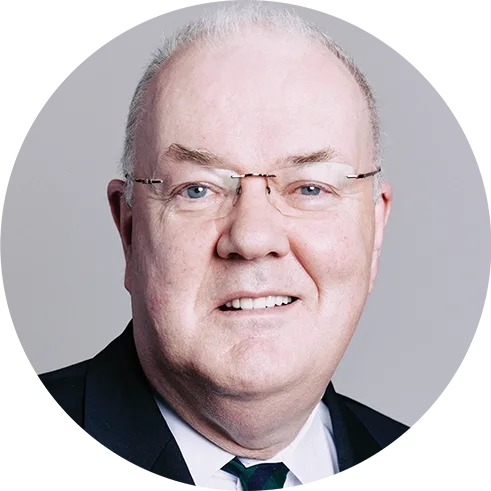I Wish I Had Become a Christian Sooner. How Can I Deal with This Feeling?

Have you ever felt regret for not becoming a Christian sooner? Today, Derek Thomas shares his personal testimony and reminds us of God’s perfect timing in bringing His people to Himself.
NATHAN W. BINGHAM: This week on the Ask Ligonier podcast, we're recording live from Ligonier's 2024 National Conference, and I'm joined by Dr. Derek Thomas. He is one of our teaching fellows here at Ligonier Ministries. And Dr. Thomas, someone wrote in, and they said they wish they had become a Christian sooner, and they would like to know how can they deal with this feeling.
DR. DEREK W.H. THOMAS: That’s a great question. It’s a very personal question. We all have our own narrative as to how we became Christians. So in my case, I was eighteen. I wasn’t raised in a Christian home, although it was a morally fairly tight home. Social historians will tell you that those who came back from the Second World War, which would’ve been my parents’ generation, identified with the church but didn’t actually attend. So, I was not raised to go to church. I didn’t read the Bible. I didn’t possess one. I had some religious phase when I was around about thirteen and went to a church in the village that I lived in, and it was all smells and bells, and I thought, “No, this is not for me.”
And I was a math-physics major. I was one of those. And I just thought that science had all the answers, until my friend sent me in the mail John Stott’s Basic Christianity, which was published just over fifty years ago now, by John Stott, and I read it. I read it during the Christmas break of my first semester at college. And within three days, I’m on the floor, on my knees praying the sinner’s prayer. And I knew immediately that something had happened, although I had no theological categories into which to place them. And it took a while—it took probably five or six months to sort of stabilize what exactly had happened.
And I joined a Christian union at the university and, more importantly, started attending Alfred Place Baptist Church, where Geoff Thomas, who had recently graduated from Westminster Seminary—which didn’t mean a thing to me then—was the minister. And he would be the minister there for fifty-plus years. And I grew. I grew in knowledge and understanding.
And do I wish that I had a testimony like my wife’s, who can’t remember a day when she didn’t believe, and she was raised in a Christian home and went to church twice on Sunday, and then Sunday school, and then went to some midweek meeting in her local church? And I think we have to have a doctrine of providence and the God orders all things from the end to the beginning. He has different stories for different people, and this is my story. This is what God intended for me.
And I think, although I understand and sympathize with the question—particularly if the background before they became a Christian included some very bad things and a lifestyle that was particularly ungodly—mine was not. Mine was, I was kind of moral and pharisaical and stuff. And I can understand then. But you turn to the Apostle Paul—Paul’s background was terrible. He had blood on his hands. I doubt that he ever went to bed at night as a believer without thinking of his complicity in the death of Stephen. You know, they laid his garments at his feet. So, he was the one who ordered this. And a more godly and seraphic figure in the New Testament you cannot find other than Stephen. So, if Paul can overcome by grace and the power of the gospel a very bad past, then so can you.
And I think we need to own the providence of God for my life. This was what God planned. This is how He ordered it from the very beginning. And I now must live the rest of my life for the glory of God and to use each day and every opportunity to bring Him the most praise and the glory.
Recent Episodes
What Does It Mean That Jesus Is “Where Two or Three Are Gathered” in His Name?
February 19, 2026|Church Discipline
Why Is the Lord’s Supper Important?
February 5, 2026|The Lord’s Supper
Will We Need Jesus as Our Mediator in Our Glorified State?
January 22, 2026|The Intercession of Christ
Which Commands and Promises in the Bible Only Apply to Those Being Immediately Spoken to and Which Apply to All Believers?
January 8, 2026|Biblical Interpretation
Did the Old Testament Saints Know God as Trinity?
December 25, 2025|The Trinity
What Is Common Grace?
December 11, 2025|Common Grace

